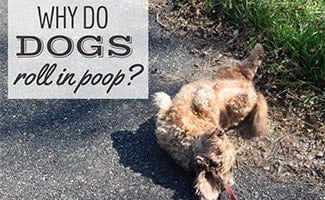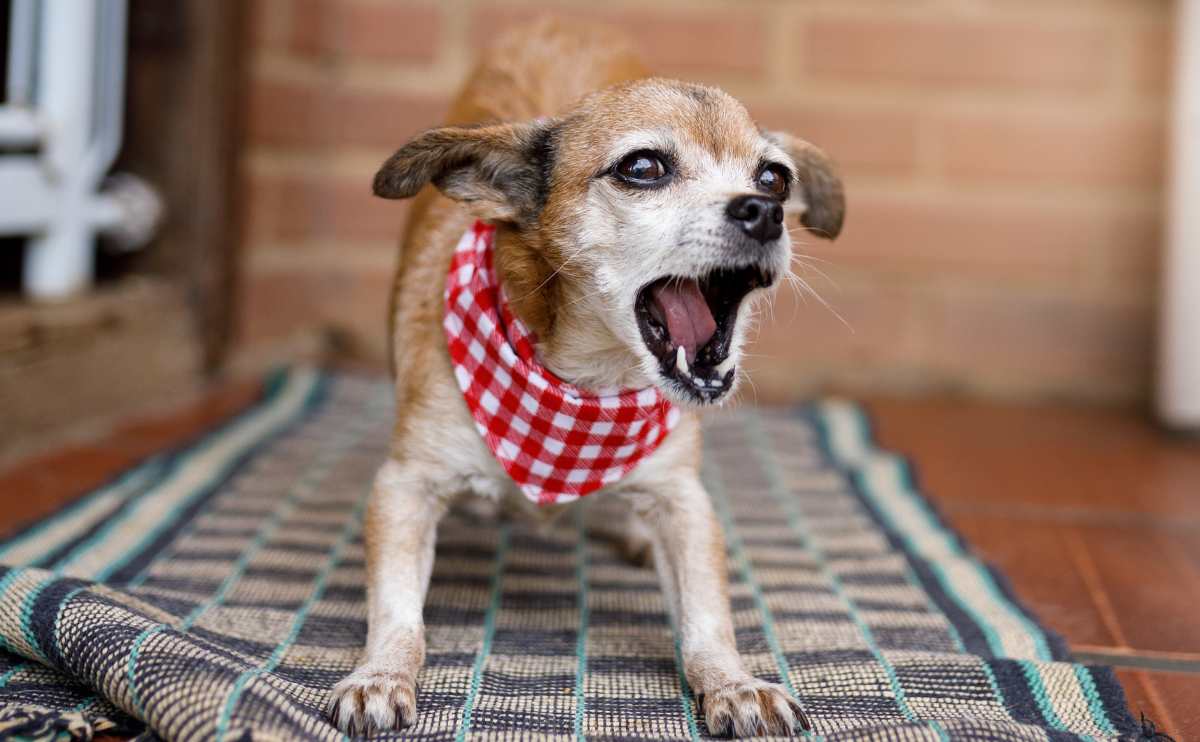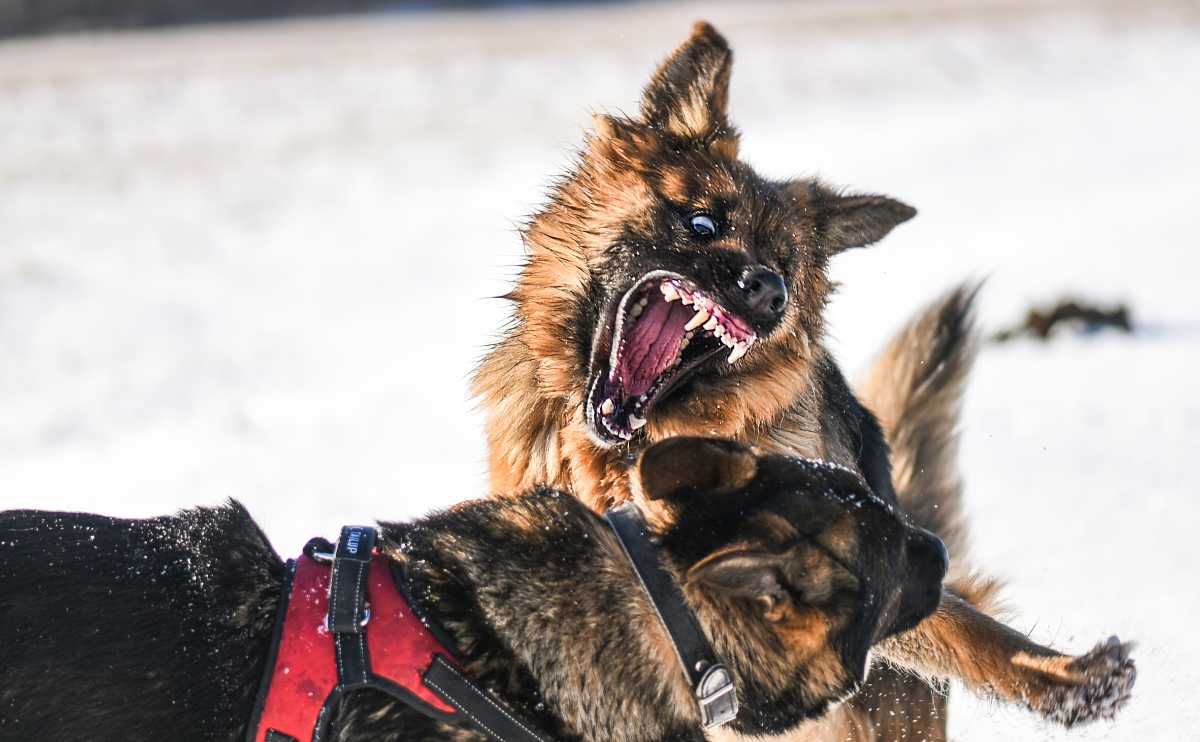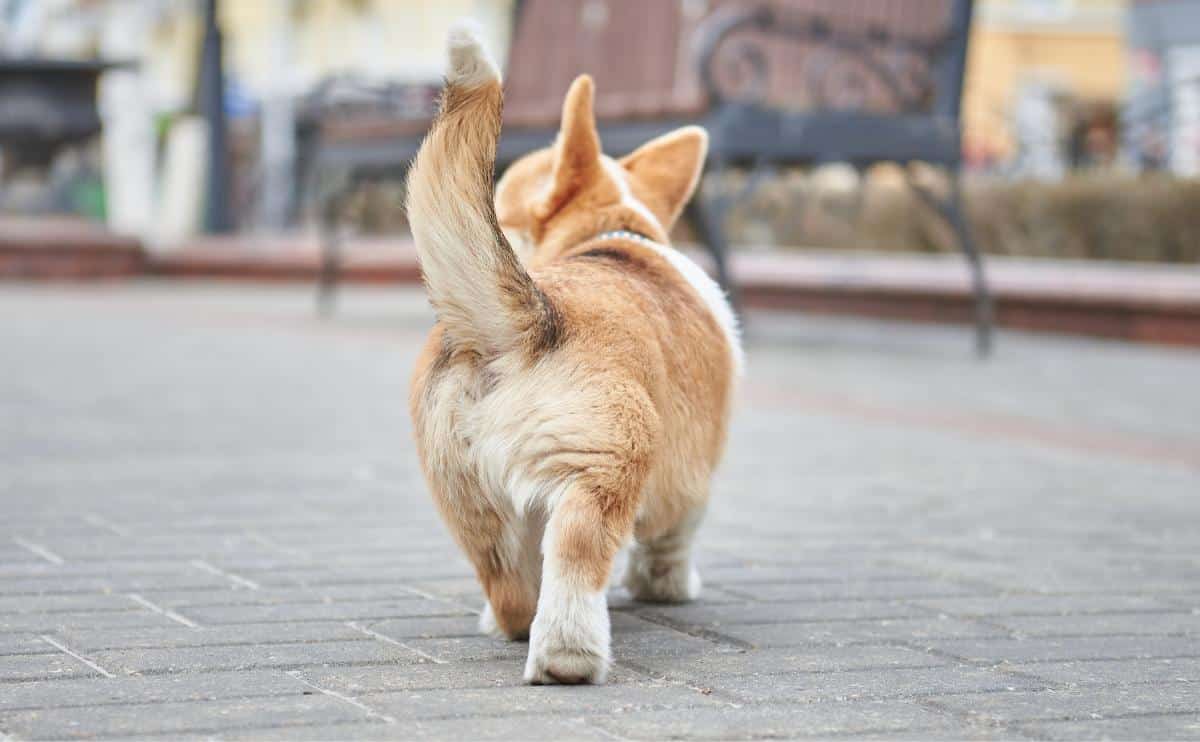When you purchase through links on our site, we may earn a commission. Here’s how it works.

Dog owners can agree your sweet pup rolling in poop in the yard can bring a quick halt to a very good day. Dogs like to roll in smelly things. What is it about poop, dead things, and other smelly stuff that makes our dogs dive in? Find out why dogs love smelling nasty and how you can stop this behavior.
Why Do Dogs Roll In Poop And Other Stinky Stuff?
There are a few theories as to why our dogs like to smell rancid. Rolling in poop and other smelly things is called scent rolling. Scent rolling can also happen with good-smelling things like grass or freshly cleaned laundry. However, canines seem to have a preference for rolling in foul-smelling stuff rather than sweet-smelling. The exact reason why dogs roll in stinky stuff like this is not certain, but veterinarians and pet experts have a few ideas.
Dogs Want To Smell “Good”
As humans, we like the smell of perfumes and shampoos, but this isn’t true for dogs. Dogs like to cover themselves in a scent that is acceptable to them. You may find that your dog likes to find the smelliest thing to roll around in right after you’ve bathed him. That’s because your dog isn’t crazy about that “shower fresh” scented shampoo you use on him. Dogs like the smell of garbage, rotting food, poop, carcasses, and other smelly and disgusting things.
To Help With Hunting
Your dog may be trying to mask his scent by rolling in stinky stuff. Scent rolling is an instinctual behavior that his wild ancestors used to help them sneak up on their prey. Wolves still do this today to help cover their scent during a hunt. Your pup may simply be rolling in the stinky stuff because of natural instincts. When poop is available, it is a perfect choice to cover their scent.
To Tell Others Where They’ve Been
Dogs smell one another, and we like to think of it as a form of greeting. To dogs rolling in feces is a way for them to tell where the other has been. A dog may roll around in a carcass or other smelly thing to share with others what they’ve encountered on their journey. Poop just so happens to be a perfect aroma to spread.
As A Form Of Marking
Your dog may be attempting to leave a scent behind, similar to marking. You may notice on a walk that your dog likes to mark everything and anything. If your dog is repeatedly rolling all over areas on your walks, he may be rolling in another dog’s marking territory in an attempt to tell others that he has been there and investigated the odor.
4 Ways To Stop A Dog From Rolling In Poop
- Pick up after your dog. Go on potty breaks with him and pick up any of his poop with a pooper scooper or poop bag.
- Keep your dog on a short leash. If your dog likes to roam on your walks, the best thing you can do is keep him next to you, so you can direct him away from smelly stuff. Here are some dog leash options for you.
- Distract your dog as soon as he starts rolling. Shake your keys or a jar of coins, make a loud noise, spray him with water, etc. Just make sure you do it as soon as he starts rolling.
- Teach him the “leave it” command. If you see your dog starting to home in on something smelly, tell him to leave it and continue past the item.
- Try an anti-pee or poop spray to deter your dog from known areas that are favorites for rolling in stinky stuff.
How Often Should I Bathe My Dog?
Have you given your dog lots of baths lately? We understand why. If your dog rolls in poop, you will have to bathe him right away. Once you get your dog’s rolling behavior under control, find out how long you can go between baths and get some dog bathing tips. These pet odor neutralizers may also come in handy when you cannot get to the bath soon enough!
Personal Experience With Dogs Rolling In Poop
“My dog Falkor, a 2-year-old Poogle, is adorable, but does not always have adorable behavior. About a year ago a stray cat was pooping in our backyard. I discovered this when Falkor came inside covered in extremely smelly goop. This unfortunately was not a one-time occurrence. In order to get the behavior to stop I had to take some big steps. First, I had to address and stop the cat from pooping in the yard.
Along with that, I had to train Falkor to stay away from the feces. To do this I could only take him outside on a leash, until I got the cat problem solved. I also used the “leave it” command. After that I worked to have Falkor use one part of the yard for his bathroom area and stay away from the part where the stray cat was pooping.”
–Danielle DeGroot, Canine Journal writer and longtime dog parent
Need More Help?
Explaining why dogs roll in poop is sometimes simple and sometimes not. However, it is common and quite gross behavior. If you have tried all of the above and nothing seems to do the trick, see your veterinarian for advice, or try using a professional dog trainer. They might be able to diagnose the issue and instruct what to do for your dog’s messy situation.
Dog owners have a lengthy list of questions about dog poop. Why do dogs turn around before they poop? Another one of our favorites is “Why do dogs eat poop?” Though unpleasant, poop and dealing with poop is an unavoidable part of dog ownership. We can learn a lot from the color, frequency, and uniqueness of canine poop. In some places, DNA testing is even being done to track down dogs whose owners leave their waste behind instead of picking it up. Whatever your canine poop problem, we have likely dealt with it. Do not be afraid to ask for help and take care of poop-related problems early before they become an even smellier situation to handle. This is especially true if your dog starts pooping blood or has trouble pooping.
Tagged With: Poop, Trivia

